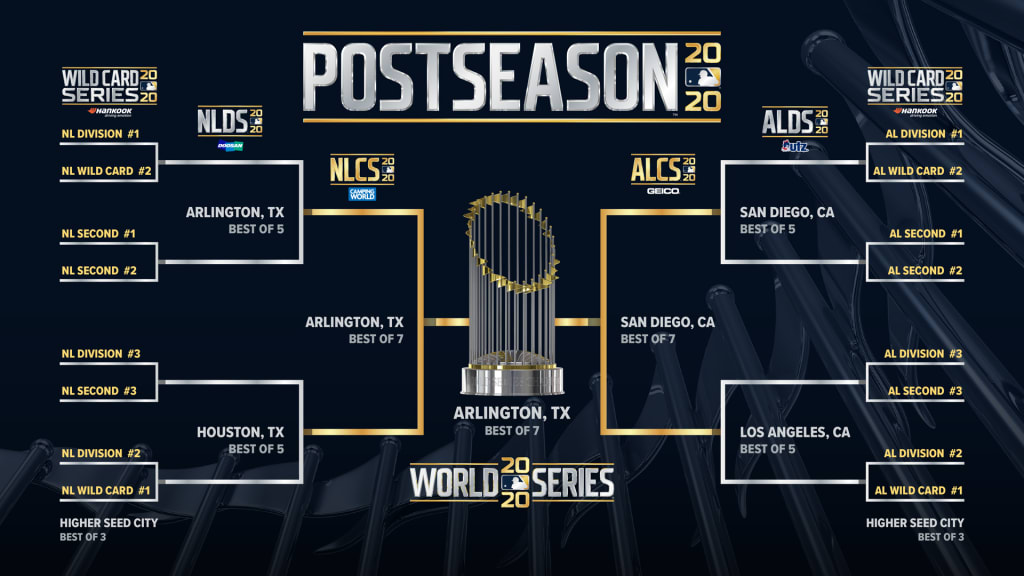
2020 baseball is giving fans something they haven’t seen before: best-of-three series across the first round of the postseason, putting seeds 1 through 8 on relatively equal footing. While it’s not quite the coin flip of the former win-or-go-home Wild Card Games, it’s pretty darn close. And the odds say that Game 1 of these series will hold more significance than any in recent memory.
Basic logic confirms that, of course. The team that wins the series opener gets two more cracks to get that second, clinching win, while the opening-game loser has no margin for error in Games 2 and 3. But a look back at the last decade’s worth of three-game series helps us put a more exact figure on the Game 1 winner’s advantage.
MLB.com’s senior data architect, Tom Tango, did the heavy lifting and sifted through every “pure” three-game series (that is, a three-game sequence between the same two clubs, and not a set of three contests within a four-game series) dating back to the start of the 2010 season. Obviously, regular-season baseball is not the same as postseason baseball, and a three-game set in early August is definitely not the same as one played amid the heavy pressures of October. Still, with no historical precedent besides a handful of three-game pennant tiebreaker series staged more than a half-century ago, 10 years of regular-season history can at least give us a more contemporary baseline expectation.
The answer: Tango found that the winner of Game 1 went on to win the series 76% of the time. Fans of probability will know that the “winner” of a first coin flip, be it heads or tails, has a 75% chance of prevailing after two more flips. The odds bumped up an extra percentage point in this data set of more than 5,500 three-game baseball series, with the extra variable being that the Game 1 winner was, more often than not, the slightly better team in the matchup.
Of course, the other wrinkle to these unprecedented three-game first-round showdowns is that all three contests will be played at the ballpark of the higher seed, and that could tip the scales just a tiny bit further. After threatening to come in at a record low after the first four weeks of the season as teams adjusted to games without fans, the league-wide home-field win percentage has rallied back in a big way, now sitting at a robust .548 with a few days of games remaining. Per Tango’s research, the home team went on to win 79% of three-game series since 2010 after claiming the first contest, while road teams won 72% of series when doing the same. And, remember, this will be the last time the majority of these teams will get to flex that home-field advantage, as the ensuing rounds will all be held at neutral sites.
Winning Game 1 has always been critical, but the odds will likely favor that team even a little bit more in a three-game set. For comparison’s sake, Game 1 winners in all best-of-five League Division Series went on to advance 73% of the time, and opening-game winners in all postseason best-of-seven series (LCS and World Series combined, dating back to when those rounds went to the best-of-seven format) claimed the set only 64% of the time.
The lack of off-days within the first three rounds of the 2020 postseason might eventually favor teams with deeper starting rotations, but when looking at the Wild Card round specifically, the no-doubt ace that can shut down the opponent and grab the all-important Game 1 could prove even more valuable. Does that spell advantage for teams like the Indians (Shane Bieber), White Sox (Lucas Giolito), Yankees (Gerrit Cole), Cubs (Yu Darvish) and Reds (Trevor Bauer)? Perhaps. But in the ultimate toss-up for a multi-game series, any pitcher or hitter can step on the field and play hero for a day. If you’re planning your postseason watch schedule at home, make sure you don’t miss the Wild Card openers on Sept. 29 and 30.


